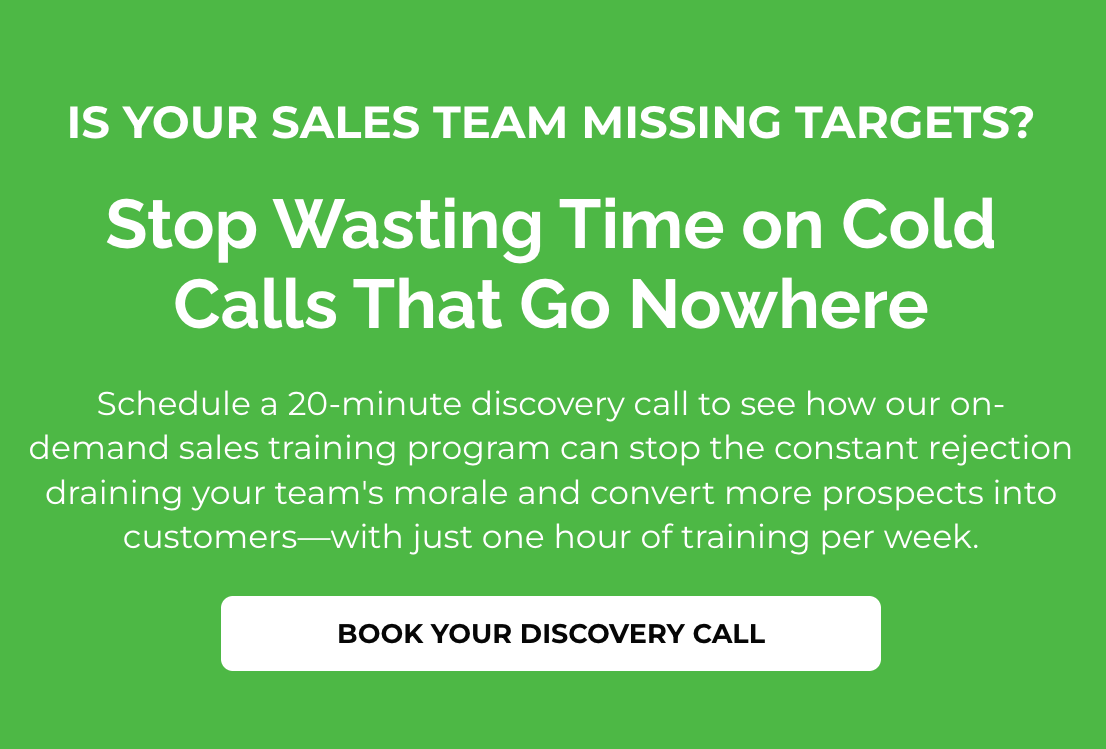The “Call Me Back After the Holidays” Sales Follow-up Call Strategy

Sales Tips, Techniques & Strategies for the:
“Call Me Back After the Holidays”
Follow-up Call
“I’ve had several prospects tell me to call them back “after the holidays,” but now that the holidays are over, they are telling me to call next month or quarter. What gives?”
That can be very frustrating for someone who needs to make a living selling by phone. On the one hand, we don’t want to be the BOILER ROOM pushy salesperson (I do love that movie, though), and on the other hand, we don’t want to be such a pushover that our job security becomes, well, less secure.
So what to do?
Well, the ultimate solution is to avoid that response from happening. You accomplish that by (on the previous call), establishing that a problem exists. Most salespeople focus on explaining their solutions rather than understanding the problem. I get that it’s a little late for that advice now, so let’s try to do some patchwork on your list of “callbacks.”
Here’s some good news:
There are only two reasons why a prospect will say, “call me next month/quarter/year” Etc.:
- It’s a blow-off; or
- It’s a valid reason
Here’s the critical part of breaking down the problem into these two options:
We can formulate and execute a game plan.
Knowing that it’s either one or the other, we can have a prepared response that will do two things:
- Identify
- Handle
So, How Do I Identify? And How Do I Handle It?
There are several ways. Here’s one of them:
Prospect: “yes, I appreciate you following up with me after the holidays. Now is still not a good time. Try me back next quarter.”
Salesperson: “Mr. Prospect, before I let you go, quick question for you, and I won’t be offended… Are you just being polite and don’t want to tell me that you don’t see any value in what we have to offer, or is it that timing isn’t right, right now?
Your prospect can only answer one of two ways:
They don’t see any value. Which you can respond in any number of ways, such as:
“Fair enough. Before I move you to my NO NEED list and never bother you again, do you mind if I ask you just a couple of quick questions to make sure we aren’t about to make a mistake? (NO PAUSE FOR ANSWER) The reason why I ask is that we have helped (competitor 1, 2, and 3) avoid ______ and gain ______, which is why I thought you would be a good fit. Would a few quick questions be OK?” (NOW LET THEM ANSWER)
And now that they’ve lowered their guard and permitted you to ask a few quick questions, you created a final shot to try and hit their hot buttons and or uncover a problem they are interested in having solved.
And if they initially responded with the following:
No, we are still interested; the timing isn’t right at the moment.
You can respond with the following:
“OK, thanks for sharing that with me. I’ll update my notes. So I don’t interrupt your day with needless calls; when should we speak again?”
Once they give you a date, take a shot at shortening the sales cycle.
Something genuine and to the point, like:
“Mr. Prospect, if there was anything I could do to help (mention the pain point) sooner, what would it be?”
They may say, “There’s nothing,” or they may say there is something you can do.
Either way, you will now know where you stand and what needs to happen next.
Having a game plan designed to IDENTIFY and HANDLE sure beats the “just checking in” routine and hoping for the best.
Quick Note: Salespeople get this type of response because they miscategorize the prospect’s role in the decision-making process.
The salesperson labeled them as a decision-maker or part of the decision-making team when, in reality, they indeed do NOT have a vote in the final decision.
This is why it is so important to follow a strategic sales process that ensures you cover all your bases to avoid falling into these sales traps.
Michael Pedone – Founder of SalesBuzz.com


